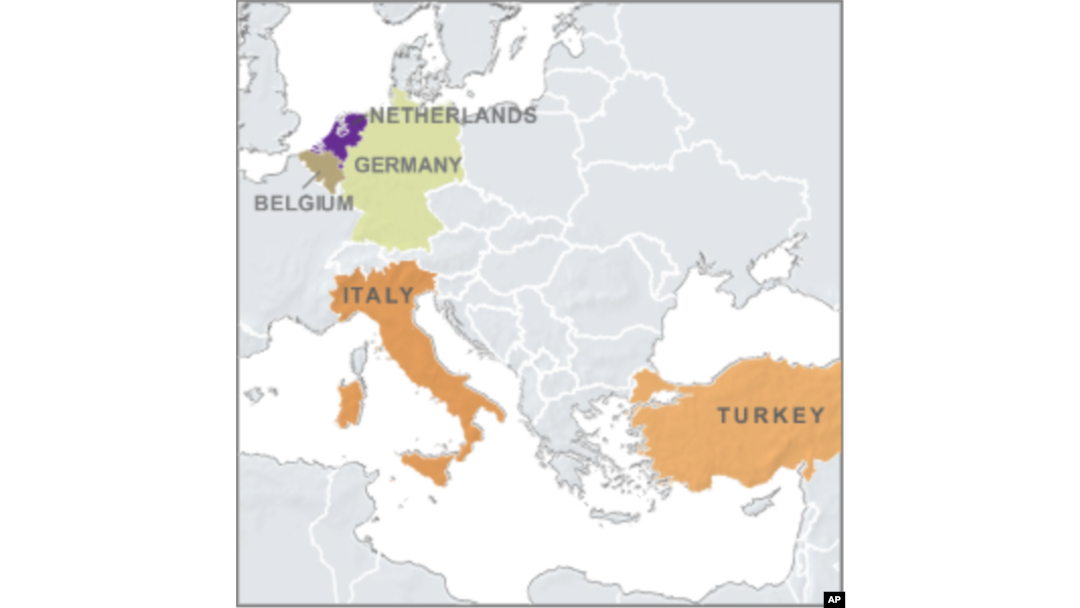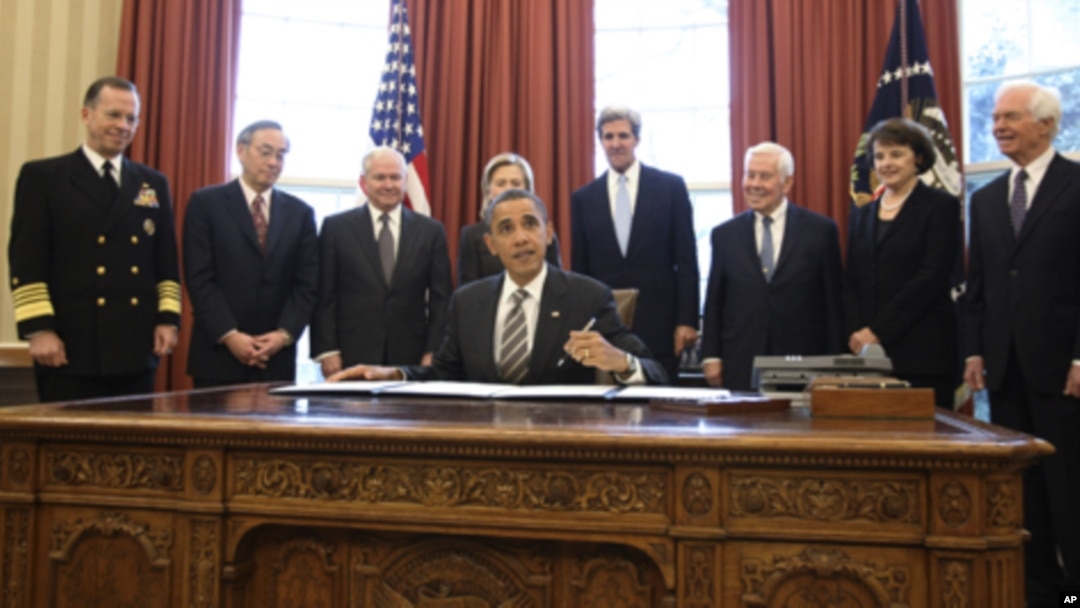A far-reaching debate is under way among members of the North Atlantic Treaty Organization over the future of tactical nuclear weapons, arms control experts say.
The United States and Russia maintain large numbers of such weapons and part of the NATO debate is about whether Washington and Moscow should open negotiations to reduce the stockpiles, which some experts consider more of a liability than an asset.
U.S. President Barack Obama has made reducing the number of nuclear weapons worldwide a priority issue of his foreign policy. Experts say that goal was furthered by the New START treaty the U.S. and Russia signed in 2010. The treaty calls for Washington and Moscow to reduce the number of long-range or strategic nuclear weapons, by half.
START

Location of US short-range nuclear missile in Europe
But the New START agreement does not address the issue of short-range or tactical nuclear weapons. Those are mounted on land- and air-based missiles with a range of less than 500 kilometers - so called "battlefield weapons" used alongside conventional forces.Neither the U.S. nor Russia has provided detailed information about their stockpiles of tactical nuclear weapons.
But analysts estimate Russia has between 2,000 and 4,000 tactical nuclear weapons. Not all are available for operational use. Some are in deep storage bunkers and others are slated to be dismantled.
The United States is estimated to have about 200 short-range nuclear missiles, mainly located in five European countries: Germany, Italy, Turkey, Belgium and The Netherlands.
NATO debate
Joseph Cirincione, president of the Ploughshares Fund, a foundation focusing on nuclear weapons policy, says there is an internal debate within NATO on what to do with the tactical weapons.
"The Germans and the Belgians in particular have pressed to get the weapons out of Europe," Cirincione said in an interview with VOA. "They say these are anachronistic, that maybe there was a purpose for these during the Cold War."
The Belgians and Germans, he said, find it inconceivable that they would face any military contingency that would require the use of tactical nuclear weapons.
But that attitude is not shared by most other NATO nations, according to David Holloway, an arms control expert at Stanford University. Others feel differently, he says, "most notably the countries of central and eastern Europe, who are more acutely aware of the kind of danger of Russian military power.
"Because given their history and more fearful of Russian intentions, they say: 'No, we should keep the tactical nuclear weapons in Europe, even though they are not based in central or eastern Europe. We should keep them in Europe as a kind of signal to Russia that it needs to be careful in how it conducts its policy toward Europe.'"
Asset or liability?
Complicating the issue is the question of security - making sure that the weapons are kept out of the hands of terrorists or others trying to acquire nuclear capabilities.
"You have a greater security risk for tactical weapons than you have for strategic weapons," Cirincione said. "And the reason is that the strategic weapons tend to be bolted onto large pieces of metal - missiles, or at bomber bases - things that are very secure, very hard to steal."
Tactical weapons, particularly with the Russian weapons, he said, tend to be in storage depots that are less secure.
"And there are lots of them," Cirincione said of the tactical warheads. "So you are talking about thousands of tactical weapons compared to hundreds of strategic weapons."
Seeking right mix
Daryl Kimball, executive director of the Arms Control Association, a private research firm, says NATO is currently revising its military doctrine, which will be discussed at its May summit in Chicago. Specifically, he says NATO members will be considering how to achieve the proper mix of nuclear, conventional forces and missile defenses needed to protect alliance countries.
"NATO can be expected to say at the Chicago summit that NATO's defense can be maintained with conventional forces primarily, and the supreme guarantee of the alliance's defense are the strategic nuclear weapons that the United States and France and the United Kingdom possess," Kimball told VOA. "They will likely say that they are interested in further steps with Russia to account for and reduce tactical nuclear weapons."
Kimball cautions, however, that he and other experts following the issue do not expect U.S.-Russia talks on the tactical weapons issue to begin anytime soon, given the presidential campaign now under way in the United States.


